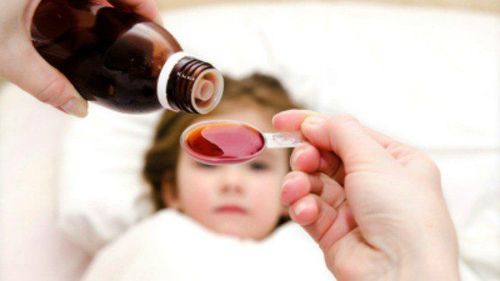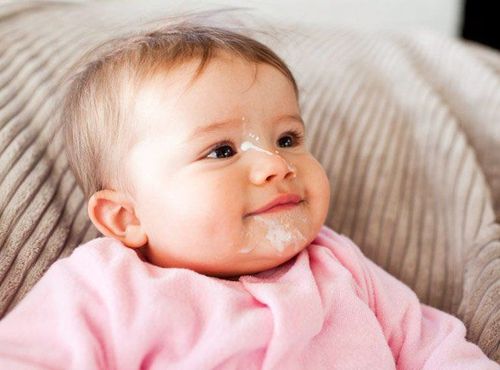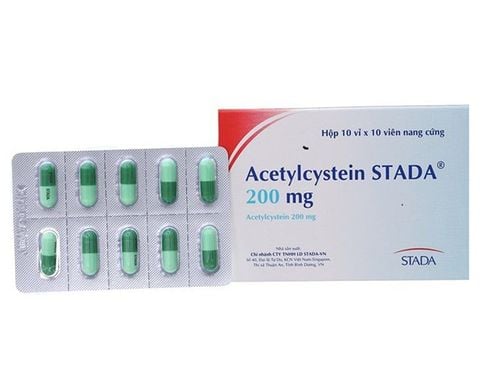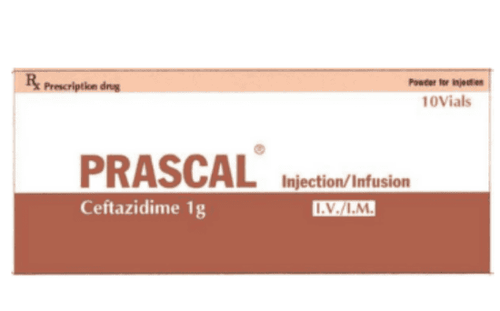This is an automatically translated article.
The article was professionally consulted with - Specialist I, Resident Doctor Dang Thi Ngoan - Pediatrician - Neonatologist - Department of Pediatrics - Neonatology - Vinmec Ha Long International General Hospital.Children with pneumonia under 5 years old, especially children under 2 months old, have a very high risk of death because most patients diagnosed with pneumonia are caused by many objective and subjective causes.
1. Overview of pneumonia in children
Pneumonia due to many causes, of which common causes are: Pneumonia can be caused by bacteria, viruses, fungi, chemicals... In fact, most cases of pneumonia cannot find the causative agent. sick. The most important factor for predicting the causative agent of pneumonia in children is based on the age of the child.
Children under 5 years old often have pneumonia caused by bacteria: Staphylococcus aureus (Staphylococcus aureus), Streptococcus pyogenes (streptococcal), Streptococcus pneumoniae (pneumococcal), Haemophilus influenzae (HiB). HiB bacteria was previously an important cause of pneumonia in children, but later, due to vaccination programs, this agent is now negligible. Children under 2 months of age, in addition to bacteria such as children under 5 years old, can also contract some intestinal bacteria such as: E. Coli, Proteus, Klebsiella Pneumoniae... transmitted by their mothers. Children over 5 years old can get pneumonia caused by bacteria such as Mycoplasma Pneumonia, Chlamydia Pneumonia, Streptococcus pneumoniae (pneumococcal), viruses (influenza A or B, Adenovirus, other respiratory viruses).
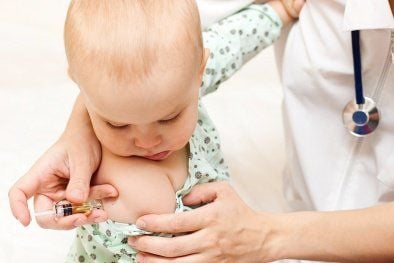
2. Is pneumonia dangerous for children?
If the child has pneumonia that is treated late or improperly, it can cause ominous complications such as effusion, pneumothorax, necrotizing pneumonia, lung abscess, pneumococcal cyst, hyponatremia. Once pneumonia complications occur, the treatment will be more complicated and the risk of death is high.
3. Diagnosis and symptoms of pneumonia
Signs of rapid breathing have the highest diagnostic value in children with pneumonia. This is also a valuable sign of early diagnosis because it has higher sensitivity and specificity than X-ray diagnosis. Tachypnea rate depending on age is regulated as follows:
Children under 2 months old: Have a breathing rate of 60 times/minute or more Children from 2 to 12 months: Have a breathing rate of 50 times/minute or more Children from 12 months - 5 years old: Having a breathing rate of 40 times/minute or more In addition, accompanying manifestations are also diverse and complex:
Early stage: Children may only have cough and low fever, watery eyes and eyes. nose, children are tired, eat poorly, stop sucking, cry, may have diarrhea, vomiting, abdominal pain... Later stage: If not properly treated and closely monitored, the manifestations may be more severe. high fever, more cough, phlegm throat, rapid breathing, shortness of breath, purple lips, purple extremities... When a child has the above signs of pneumonia, the family needs to take the child to a medical facility immediately. Because if not handled promptly, it will lead to more severe pneumonia accompanied by chest indrawing, cyanosis, convulsions...
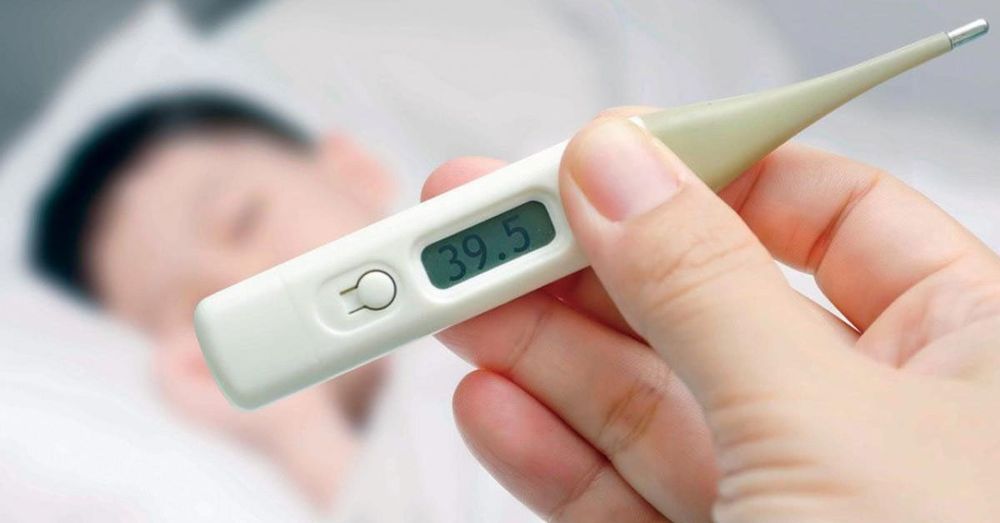
4. Treatment measures for children with pneumonia
Usually when a child is diagnosed with pneumonia, if the cause comes from bacteria, the doctor will prescribe antibiotic treatment. Here are some suggestions for antibiotics for each age of your child.
Many parents do not know how long a newborn has pneumonia to be treated, however, to answer this question depends on many factors, especially the child's condition and severity of illness. If the child has very severe pneumonia, use Cefotaxime antibiotics to reduce the symptoms..
4.1 Treatment of children aged 2 months to 5 years with pneumonia
If the child has non-severe pneumonia: If the child has only signs of cough and rapid breathing, it can be treated as an outpatient, using a mixed antibiotic Cotrimoxazol (480mg) or using Amoxicillin to monitor after 2-3 days, if it improves. enough treatment 5-7 days. Conversely, if there is no improvement or signs of worsening, then treat as severe pneumonia. If the child has severe pneumonia: There are signs such as shortness of breath, chest tightness, they need to be hospitalized for treatment. Use antiviral drug Benzylpenicillin (Penicillin G) or antibiotic Ampicillin combined to monitor the reaction after 2-3 days. If it helps, continue taking it for 5 to 10 days, if it doesn't get better or gets worse, switch to treatment like very severe pneumonia. If the child has very severe pneumonia: The child has signs of shortness of breath, chest tightness, cyanosis, and needs to be treated at the hospital. Use Benzylpenicillin in combination with Gentamycin (80mg) or use the antibiotic Chloramphenicol for a period of 5-10 days or Ampicillin in combination with Gentamycin (80mg) or the antibiotic against infection Cefuroxime.
4.2 With children over 5 years old
Use Benzylpenicillin or antibiotics against infections Cefotaxime or Ceftriaxon (Rocephin). For children with atypical pneumonia, the family can use Erythromycin orally for 10 days or Azithromycin in doses for 7-10 days.
At the same time, the family should combine with some other supportive pneumonia treatment methods such as:
Nose hygiene: Often children with pneumonia also often have respiratory infections, so they can clean their noses. with physiological saline, remove mucus from the nose with a trumpet wick or a nasal aspirator. Antipyretic: If the child has a fever above 38 degrees Celsius and shows signs of discomfort, crying, then use Paracetamol fever reducer according to the doctor's instructions. Ibuprofen can also help reduce fever and pain, but the dose depends on the child's weight, so ask your doctor how to take these medicines. Aspirin and aspirin-containing products should not be given to children under 18 years of age because Aspirin can lead to a very serious condition called Reye's syndrome, which can be fatal in children Cough relief safely: If your child only has a moderate cough then try not to use cough suppressants, because their reflexes will help the baby to push the phlegm out. Conversely, if the child coughs too much, it is possible to combine expectorants and cough suppressants to help thin the mucus stuck in the child's lungs. Attention to nutrition for children: Give children with pneumonia to drink enough water through milk, direct drinking water, porridge... Pay attention to the baby's urination to see if the amount of water supplied is enough, if the baby is Low urine output, yellow urine may be due to dehydration. Keeping the air and temperature in the room suitable: The air in the room with the right humidity will support the respiratory mucosa, parents should avoid letting the child lie in the air conditioner at too low a temperature, the lowest temperature should be 29 degrees. Note for the child to have a follow-up visit every day or every 2 days as directed by the doctor. As a key area of Vinmec Medical system, Pediatrics Department always brings satisfaction to customers and is highly appreciated by industry experts with:
Gathering a team of leading pediatricians: including leading experts with high professional qualifications (professors, associate professors, doctorates, masters), experienced, worked at major hospitals such as Bach Mai, 108.. Doctors All are well-trained, professional, with a mind - range, understanding young psychology. In addition to domestic pediatric specialists, the Department of Pediatrics also has the participation of foreign experts (Japan, Singapore, Australia, USA) who are always pioneers in applying the latest and most effective treatment regimens. . Comprehensive services: In the field of Pediatrics, Vinmec provides a series of continuous medical examination and treatment services from Newborn to Pediatric and Vaccine,... according to international standards to help parents take care of their baby's health from birth to childhood. from birth to adulthood Specialized techniques: Vinmec has successfully deployed many specialized techniques to make the treatment of difficult diseases in Pediatrics more effective: neurosurgery - skull surgery, stem cell transplantation. blood in cancer treatment. Professional care: In addition to understanding children's psychology, Vinmec also pays special attention to the children's play space, helping them to have fun and get used to the hospital's environment, cooperate in treatment, improve the efficiency of medical treatment.
If you have unusual symptoms, you should be examined and consulted with a specialist.
Please dial HOTLINE for more information or register for an appointment HERE. Download MyVinmec app to make appointments faster and to manage your bookings easily.





